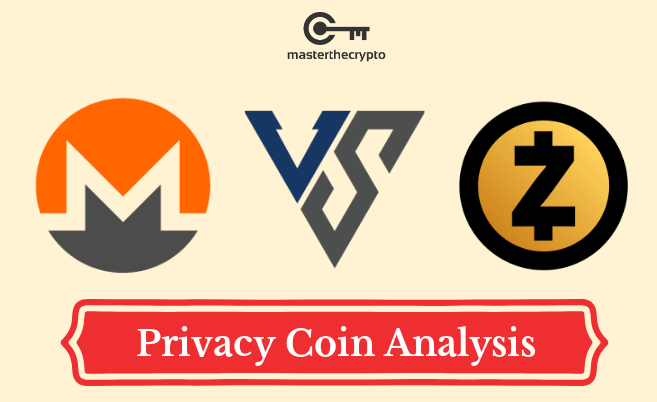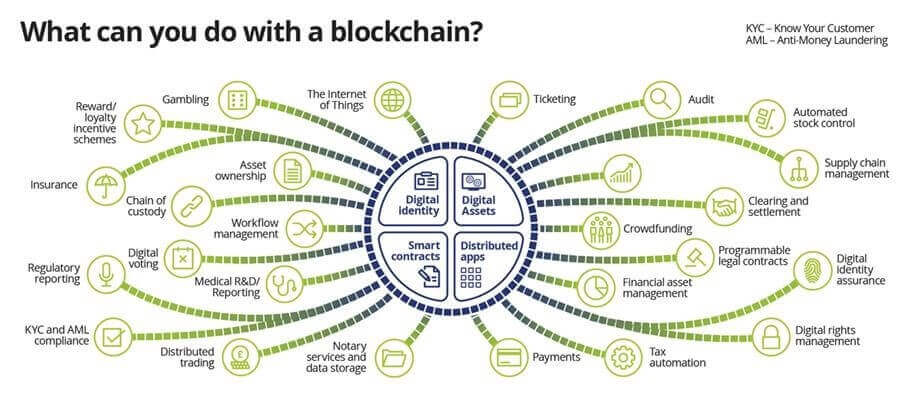Privacy Coin Analysis: Monero (XMR) vs ZCash (ZEC)

This privacy coin analysis takes a look at the two leading coins focusing on anonymizing transactions; Monero (XMR) and ZCash (ZEC).
Cryptocurrencies were launched with the aim of anonymizing online payments completely. Some of the most popular cryptocurrencies – Bitcoin, Litecoin and Ethereum – are created with specific characteristics; Bitcoin is used mainly as digital cash, Ethereum facilitates the creation of decentralized applications (dApps) and smart contracts, while Litecoin is characterized as the ‘silver‘ to Bitcoin’s gold. Unfortunately, due to their massive popularity, major coins leave lots to be desired when it comes to anonymity. For a truly private coin, you have to consider other purpose-built cryptocurrencies.
There are currently two major coins that are leading the quest for complete anonymity; Zcash and Monero. They offer a completely private online payment system but are powered by a different technology. In this article, we’re going to discuss and compare the privacy features of these coins and ascertain each of their use cases.
(Read also: Guide on Privacy Coins: Comparison of Anonymous Cryptocurrencies)
Private Cryptocurrencies
Cryptocurrencies should, in spirit and principle, be completely private. Blockchain privacy is determined by a coin’s features that obscure transactional data such as addresses and transfer amounts. Without hiding this data, blockchain forensic experts can quite easily identify users, especially since know-your-customer (KYC) laws are enforced by cryptocurrency exchanges.
Monero
Monero (XMR) adopts ‘ring signatures’, ‘ring confidential transactions’ and stealth address to obscure transactional data (the transacting parties and the amount transacted). Ring confidential transaction technology hides the route of the transaction and its amount. Stealth addresses allow the two parties to publish one address but receive payments through several unlinked addresses. This keeps, or attempts to keep sender and recipient information completely private.
Previously in 2017, it was claimed that Monero’s technology had major flaws in hiding transactional information. It was claimed that coin’s ring signatures could be de-anonymized through ‘chain-reaction analysis’.
With the integration of RingCT and stealth addresses however, those claims have been taken care of according to the Monero developer team.
Zcash
Zcash’s (ZEC) approach to privacy takes a different approach, by using a technology called ‘zk-snarks’. Basically, zk-snarks uses a concept called ‘zero-knowledge’ proofs. What this means is that you prove something while revealing a minimal amount of information. An interesting thing to note about Zcash is that stealth transactions are optional, rather than a default feature.
Trust in Zcash’s privacy was shaken when it was found that 69 percent of shielded transactions could be linked to either founders or miners. Since this is a fairly recent problem, it has still not been rectified completely.
(See also: Guide on Identifying Scam Coins)
Cryptocurrency Network Privacy
Network privacy refers to anonymizing of user information such as IP addresses through features like Tor and I2P networks.
Monero
Although Monero is a private coin that obscures its user’s data on the blockchain, it is still possible to identify users via the leaking of IP addresses. To stop this ‘vulnerability’, the Monero team is currently working on Kovri, a C++ version of the current I2P network. Kovri is being designed to de-link IP addresses from transactions and hide geolocations.
This is definitely a step in the right directions towards ensuring complete anonymity for Monero users. Kovri is still in the alpha stage so for now, users have to manage their own network protection.
Zcash
Zcash users can choose to operate on the Tor network. But like blockchain privacy, this is also optional. Unlike Monero, there are no plans for built-in network privacy features for Zcash.
Read more: Category of Cryptocurrency Market: Social Network Coins)
Default / Mandatory Privacy
Depending on the cryptocurrency, privacy features can optional or mandatory. Since there are side effects of enabling strict privacy on blockchain transfers, it’s natural that some coins will give users this choice.
Monero
Monero is a truly private cryptocurrency since it has privacy enabled by default. This default setting ensures that all transactions are carried on the same private standard. Of course, there is greater overhead fees associated with private transactions as they place a heavier workload on the network. Performance of the private network is being constantly improved by the developers.
Zcash
Perhaps one of the biggest flaws of Zcash as a privacy coin is that stealth operations are optional. This flexibility appears to be a benefit, but in reality, it just leads to a lot of confusion. Users who switch between public and private version of the blockchain risk leaking metadata that can result in reduced anonymity.
What’s more, just 13.4 percent of Zcash transactions are private. This goes to show that Zcash isn’t really being used as a privacy coin. Private transactions are expensive and few wallets support them, so this doesn’t come as much of a surprise.
Zcash is essentially a Bitcoin fork, so it’s easier for wallets to support regular transactions. Fortunately, stealth transactions on the network are becoming less expensive thanks to zk-snarks efficiency improvements. These improvements might lead to Zcash one day becoming a privacy-only coin in the future. We willl have to wait and see.
(See more: Public Vs Private Blockchain: What’s The Difference?)
Privacy-Related Drawbacks
Monero
Monero is a privacy coin by default, and as such comes with high fees and slow confirmations. The October 18th hardfork which integrates bulletproofs into RingCT has made things better as it aims to reduce transaction data by up to 80 percent.
Zcash
Keeping in mind the increased processing requirements, only a few portions of Zcash users choose stealth transactions. The Sapling upgrade has made stealth transactions much less taxing by reducing RAM requirements from 3 GB to just 40MB.
For a greater understanding of the limitations of blockchain technology (slow confirmations, high fees etc.), it is vital to understand the issue of scalability. Here is an article that breaks down scalability.
Which is the Better Privacy Coin?
Cryptocurrency is still a fairly nascent technology, and as such hasn’t been fully realized yet. Even the best private coin will eventually reveal some flaws that are simply there because the technology hasn’t matured well enough.
Still, if you are looking for the best private cryptocurrency, Monero should be your top choice. Yes, it does come with high fees and slow confirmations but its blockchain and network-level privacy are almost peerless. What’s more, you can rest assured that your transaction will be completely private as it’s the default for this coin. The key for individuals who want to keep their Monero safe is to use a secure anonymous wallet for their transactions.
So even though Monero appears to be the cryptocurrency of choice for cybercriminals, it is still a very secure technology. We really can’t blame Monero for how it is being used, just like it’s illogical to blame traditional paper money for a bank heist.
Zcash is making progress in being a great privacy coin but unless it mandates privacy by default, it can’t really be recommended.
(You might also be interested in: Cryptocurrency Guides: Comprehensive List of Crypto Guides For Beginners)
Beneficial Resources To Get You Started
If you’re starting your journey into the complex world of cryptocurrencies, here’s a list of useful resources and guides that will get you on your way:

Trading & Exchange
- Crypto Guide 101: Choosing The Best Cryptocurrency Exchange
- Guide to Bittrex Exchange: How to Trade on Bittrex
- Guide to Binance Exchange: How to Open Binance Account and What You Should Know
- Guide to Etherdelta Exchange: How to Trade on Etherdelta
- Guide To Cryptocurrency Trading Basics: Introduction to Crypto Technical Analysis
- Cryptocurrency Trading: Understanding Cryptocurrency Trading Pairs & How it Works
- Crypto Trading Guide: 4 Common Pitfalls Every Crypto Trader Will Experience
Wallets
- Guide to Cryptocurrency Wallets: Why Do You Need Wallets?
- Guide to Cryptocurrency Wallets: Opening a Bitcoin Wallet
- Guide to Cryptocurrency Wallets: Opening a MyEtherWallet (MEW)
Read also: Crypto Trading Guide: 4 Common Pitfalls Every Crypto Trader Will Experience and Guide To Cryptocurrency Trading Basics: Introduction to Crypto Technical Analysis.
Sponsored Ad: Your dog deserves to be healthy & happy
Enroll in our Free Cryptocurrency Webinar now to learn everything you need to know about crypto investing.
Get our exclusive e-book which will guide you on the step-by-step process to get started with making money via Cryptocurrency investments!
You can also join our Facebook group at Master The Crypto: Advanced Cryptocurrency Knowledge to ask any questions regarding cryptocurrencies.

I’m Aziz, a seasoned cryptocurrency trader who’s really passionate about 2 things; #1) the awesome-revolutionary blockchain technology underlying crypto and #2) helping make bitcoin great ‘again’!
The post Privacy Coin Analysis: Monero (XMR) vs ZCash (ZEC) appeared first on Master The Crypto.







